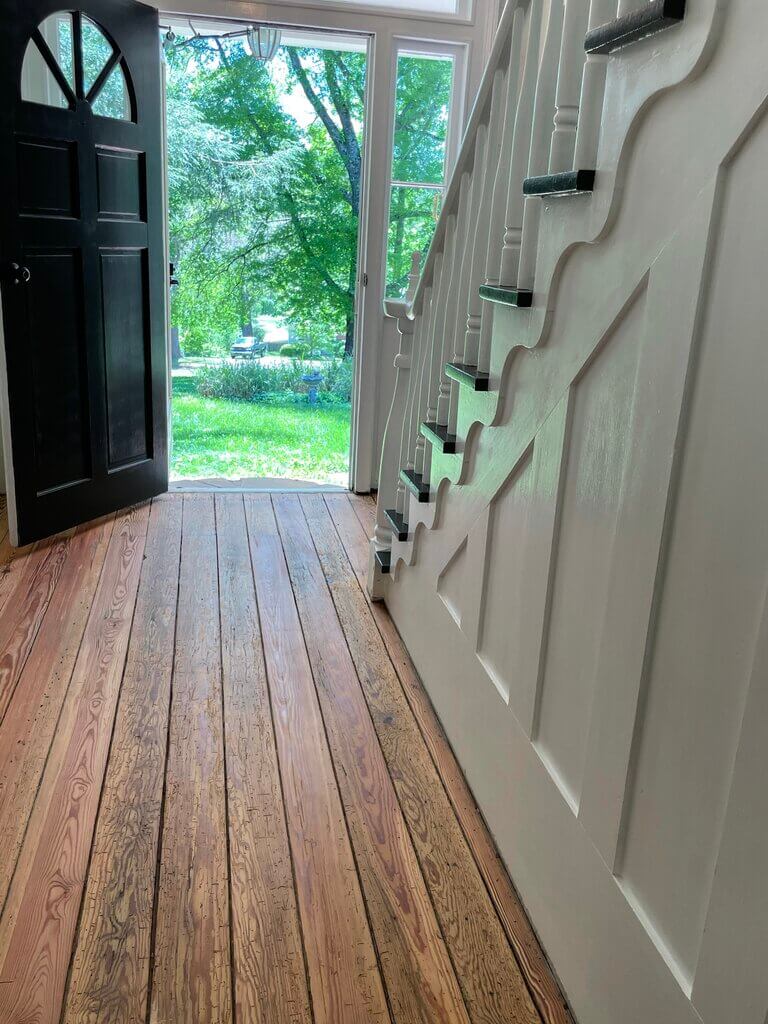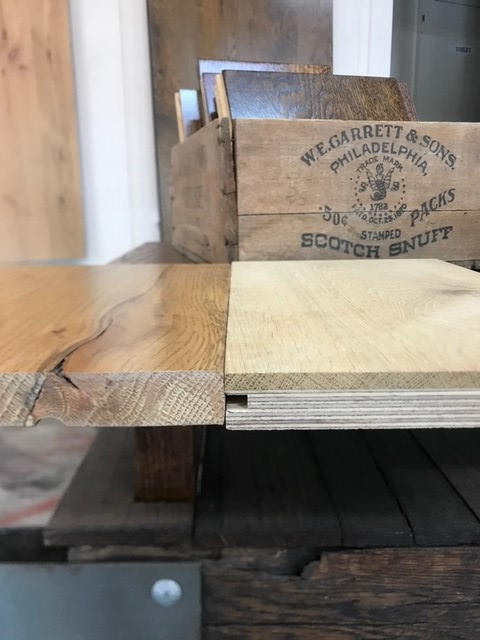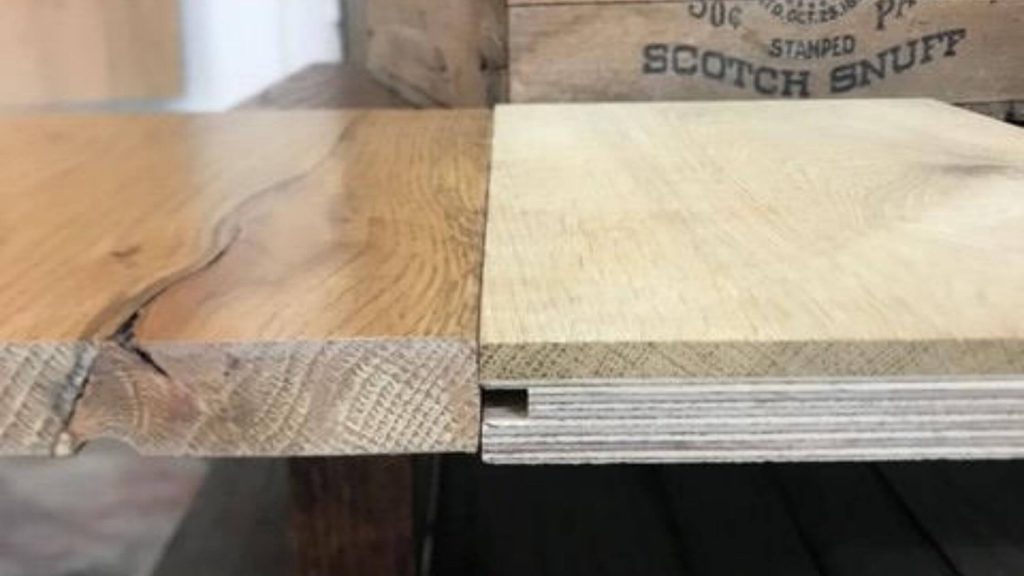We can’t tell you how many times customers come to us frustrated because flooring manufacturers have told them not to choose solid wood for flooring. They hear that engineered flooring is more stable and are told solid wood will cup and not last as long. But this just goes against what seems natural to people. Solid wood has been around for hundreds of years and has withstood the test of time. Yes, there are instances when it has cupped due to extreme elements or improper installation. But there are also plenty of examples of solid wood floors that are well over 100 years old and still look and perform great! Here is an example of a Longleaf Heart Pine floor in Sevierville, TN, that we recently refinished. This floor is almost 150 years old! It is absolutely gorgeous, has plenty of character, and is still strong and stable.


So why has something that has worked well for hundreds of years being pushed aside by manufacturers? Is it really less stable than engineered wood? Let us look at some of the facts:
What are they made of?
Solid Wood
This is 100% genuine solid wood from top to bottom throughout the entire board. It is usually made from hardwood tree species like white oak, red oak, hickory, maple, or walnut. Still, it can come in almost any type of wood imaginable. Even if you prefer softer wood like yellow pine. The important thing to remember is that solid wood is a whole plank cut from a tree.
Engineered Wood
Surprisingly, engineered wood is also 100% real wood; it is just not one plank cut from the same tree. It consists of a thin layer of real wood (called the veneer) which is then glued to a sublayer of plywood. Sometimes the plywood is the same type of wood as the veneer, but not always. It is important to check with the manufacturer to make sure the wood is the same throughout.


What about stability?
This is where the biggest argument is found. The accusation, once again, is that solid wood will cup and is not as stable as engineered wood. Is this true? The reality is that solid wood, being a natural element, will react to the atmosphere around it. However, if the floor is installed correctly and treated properly for the changes in humidity in your region, it can be just as stable. It is also essential to consider the subfloor, the skill of your installer, and the type of wood species you are using.
Both solid wood and engineered wood have good resistance to heat, but neither is recommended for extremely wet locations. It is possible to install either, but if it rains every day and you do not have a dehumidifier, you might want to think about tile or vinyl.
It is true that engineered wood does slightly better in humid conditions and when installed over concrete. However, once again, if solid wood is installed correctly and treated appropriately, it can do just as well. If you are installing in a basement, be sure to check with a local hardwood flooring expert. They have likely installed both kinds of flooring and will know which will work best for you.
The TRUTH
With the above factors taken into consideration, it is evident that stability is not the main factor in choosing engineered wood over solid wood. The truth is manufacturers push engineered wood and prefer you to buy it over solid wood because they can get a higher profit. The sales price to the consumer is not that much different, but the cost for the retailer is significantly cheaper. This is because the amount of wood that goes into a solid board could be sliced into thin veneers, resulting in at least 8 engineered planks. If you do the math, you can see why manufacturers would prefer you purchase engineered wood.
Why you should consider solid hardwood flooring:
Engineered wood has its merits, but we believe solid wood flooring is the best choice in most cases.
The first reason is that it lasts longer. Installing solid wood flooring is an investment that will outlive you. It has been proven to add value to your home for years, which is highly beneficial when you decide to sell.
The second reason is aesthetic. If you want to add hardwood flooring to a room, it is much easier to match solid wood with existing wood in your home. You will have more customization options, and you can match the color on-site. It is also easier to repair if damage does occur.
The final reason is, it is environmentally friendly! Using solid wood produces less VOCs than engineered wood (with all the glue and bonding material to hold the layers together), and it is truly sustainable. You can read more about the environmental benefits here [blog about environmentally-friendly hardwood].
Overall, with this customizability and solid wood’s longevity, and proven track record, we believe it is the superior product and will continue to be.
Want to know if solid wood is best for your home or business? Give us a call or fill out the form below!



